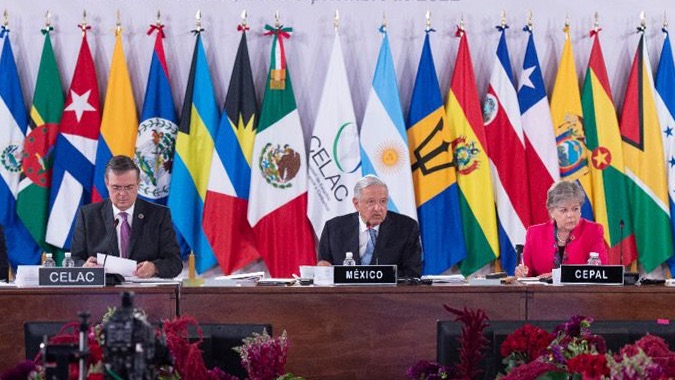Njia za Kukuza Ustawi wa Kiakili na Kijamii kwa Wazee wenye Unyanyapaa wa Jamii

Updated at: 2024-05-25 10:22:47 (1 year ago by SW - Melkisedeck Shine)
Njia za Kukuza Ustawi wa Kiakili na Kijamii kwa Wazee wenye Unyanyapaa wa Jamii 🌟
Njia za Kukuza Ustawi wa Kiakili na Kijamii kwa wazee wenye unyanyapaa wa jamii ni muhimu sana katika kuboresha maisha yao na kuwapa furaha na utimilifu. Kwa kuwa AckySHINE ni mtaalamu katika eneo hili, ningependa kukushirikisha njia mbalimbali ambazo zinaweza kuwasaidia wazee hawa kuondokana na unyanyapaa wa jamii na kuimarisha ustawi wao.
-
Kushiriki katika shughuli za kijamii 🎉 Kushiriki katika shughuli za kijamii kama vile mikutano ya jamii, klabu za wazee, na makongamano ya kila mwaka kunaweza kuwasaidia wazee hawa kuondokana na unyanyapaa. Kupitia shughuli hizi, wazee wanaweza kukutana na watu wengine wenye hali kama yao na kushiriki katika mazungumzo na shughuli za kusisimua.
-
Kujitolea kusaidia wengine 👥 Kujitolea kuwasaidia wengine ni njia nzuri ya kuongeza ustawi wa kiakili na kijamii kwa wazee wenye unyanyapaa wa jamii. Kwa kufanya hivyo, wazee hawa wanaweza kujisikia kuwa bado wana thamani na wanaweza kuchangia katika jamii. Kwa mfano, wanaweza kujitolea kuwasaidia watoto yatima au kutengeneza vikundi vya kusaidiana katika jamii zao.
-
Kupata mafunzo na maarifa mapya 📚 Kupata mafunzo na maarifa mapya ni njia nyingine ya kuongeza ustawi wa kiakili kwa wazee wenye unyanyapaa wa jamii. Wanaweza kuchukua kozi za kujifunza ujuzi mpya, kama vile kujifunza lugha mpya au kujifunza jinsi ya kutumia kompyuta. Hii itawasaidia kujisikia kuwa bado wanaweza kujifunza na kukua kila siku.
-
Kujiunga na vikundi vya michezo na burudani 🏀 Kujiunga na vikundi vya michezo na burudani kama vile klabu za gofu au vikundi vya kukariri ni njia nzuri ya kuimarisha ustawi wa kiakili na kijamii kwa wazee wenye unyanyapaa wa jamii. Kupitia michezo na burudani, wazee hawa wanaweza kuwa na uhusiano mzuri na watu wengine na kujisikia kujumuishwa katika jamii.
-
Kujenga mahusiano ya karibu na familia na marafiki ⚡️ Kujenga mahusiano ya karibu na familia na marafiki ni muhimu sana kwa wazee wenye unyanyapaa wa jamii. Kwa kuwa na msaada wa karibu kutoka kwa wapendwa wao, wazee hawa wanaweza kuwa na nguvu zaidi ya kukabiliana na unyanyapaa na kujisikia kuwa wanathaminiwa.
-
Kupata ushauri na msaada wa kitaalamu 🌈 Kupata ushauri na msaada wa kitaalamu kutoka kwa wataalamu kama vile wataalamu wa afya ya akili au washauri ni muhimu sana katika kukuza ustawi wa kiakili na kijamii kwa wazee wenye unyanyapaa wa jamii. Wataalamu hawa wanaweza kutoa msaada wa kisaikolojia na ushauri unaohitajika kwa wazee hawa kukabiliana na changamoto zinazowakabili.
-
Kufanya mazoezi na kula vyakula vyenye afya 🥦 Kufanya mazoezi na kula vyakula vyenye afya ni muhimu kwa afya na ustawi wa wazee. Mazoezi yanaweza kuwasaidia kuwa na mwili na akili yenye nguvu, wakati kula vyakula vyenye afya kunaweza kuimarisha mfumo wao wa kinga na kuwasaidia kujisikia vizuri kihemko.
-
Kujihusisha na shughuli zenye maana 🌻 Kujihusisha na shughuli zenye maana kama kufanya kazi ya kujitolea katika vituo vya huduma za jamii au kuendeleza miradi ya kujenga jamii ni njia nzuri ya kuongeza ustawi wa kiakili na kijamii kwa wazee wenye unyanyapaa wa jamii. Kupitia shughuli hizi, wazee wanaweza kujisikia kuwa wana mchango mkubwa katika jamii na kujisikia kuwa wana thamani.
-
Kuendelea kujifunza na kuboresha ujuzi wao 👨🎓 Kuendelea kujifunza na kuboresha ujuzi wao ni njia muhimu ya kuimarisha ustawi wa kiakili kwa wazee wenye unyanyapaa wa jamii. Wanaweza kuchukua kozi za kujifunza ujuzi mpya au kusoma vitabu na machapisho mbalimbali ili kuendelea kuwa na akili yenye nguvu na tajiri.
-
Kufanya mazoezi ya akili 🧠 Kufanya mazoezi ya akili kama vile kusoma, kucheza michezo ya akili, au kujifunza vitu vipya ni njia nzuri ya kuimarisha ustawi wa kiakili kwa wazee wenye unyanyapaa wa jamii. Mazoezi haya yanaweza kuwasaidia kushinda hofu, kuongeza uwezo wao wa kufikiri, na kuwa na akili yenye nguvu.
-
Kujenga na kudumisha mahusiano ya kimapenzi 💑 Kujenga na kudumisha mahusiano ya kimapenzi ni muhimu sana katika kuongeza ustawi wa kijamii na kiakili kwa wazee wenye unyanyapaa wa jamii. Mahusiano haya yanaweza kuwapatia faraja, msaada na upendo, na kuwafanya wajisikie kuwa na mahali maalum katika maisha ya mtu mwingine.
-
Kujifunza na kujali utamaduni mpya 🌍 Kujifunza na kujali utamaduni mpya ni njia nzuri ya kuongeza ustawi wa kijamii kwa wazee wenye unyanyapaa wa jamii. Wanaweza kujifunza lugha na desturi za watu wengine, na hivyo kuwa na uwezo wa kuwasiliana na kushirikiana na watu kutoka tamaduni tofauti.
-
Kukumbatia furaha na kujisikia vizuri 💃 Kukumbatia furaha na kujisikia vizuri ni muhimu sana katika kuongeza ustawi wa kiakili na kijamii kwa wazee wenye unyanyapaa wa jamii. Wanaweza kufanya mambo ambayo yanawafurahisha na kuwapa hisia nzuri, kama vile kusikiliza muziki, kucheza mchezo wao pendwa, au kusafiri.
-
Kupunguza msongo wa mawazo na kujitunza kihemko 🌈 Kupunguza msongo wa mawazo na kujitunza kihemko ni muhimu katika kuimarisha ustawi wa kiakili kwa wazee wenye unyanyapaa wa jamii. Wanaweza kufanya mazoezi ya kupumzika kama vile yoga au meditation






